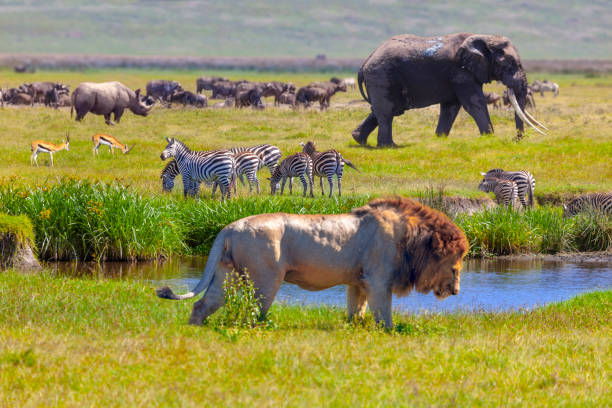Luxury African Safari: What to Expect and How to Plan
A luxury African safari combines close wildlife encounters, comfortable accommodation, and personalised service across varied landscapes from savanna to riverine forests. For UK travellers, these trips balance wildlife viewing with relaxation, expert guiding and carefully curated experiences. This article explains what defines a luxury safari, how to plan one, and where to find reliable providers and local services.

What defines a luxury safari?
A luxury safari typically means higher staff-to-guest ratios, exclusive camps or lodges, refined dining and personalised activities such as private game drives, walking safaris and night drives. Luxury accommodation often emphasises design, privacy and location—waterfront suites, private plunge pools and secluded tents set in prime wildlife zones. Equally important are expert guides, conservation-minded operations and small group sizes that allow tailored itineraries rather than fixed schedules.
How to choose accommodation and camps
When comparing lodges and tented camps, consider location relative to key wildlife areas, style of accommodation, inclusions (meals, transfers, activities) and the operator’s conservation policies. Some properties specialise in photographic hides or river safaris, while others focus on walking safaris or cultural visits. Look for clear information about what’s included and what incurs extra charges—transfers, park fees and optional experiences can affect the overall value. Reviews and verified guest feedback can help assess service consistency.
Wildlife, activities and ethical considerations
Luxury safaris can offer high-quality close encounters with the “Big Five” and other species, but responsible viewing practices and animal welfare should guide choices. Ask operators about their wildlife viewing protocols, limits on vehicle numbers, and community engagement. Activities often include day and night game drives, guided bush walks, birdwatching, boat safaris and cultural experiences with local communities. Prioritise operators that support anti-poaching efforts, local employment and sustainable tourism.
Practical planning: logistics, health and timing
From the UK, flights to gateway cities in East and Southern Africa commonly require overnight travel and regional connections. Allow time for internal transfers—light aircraft flights to remote concessions are typical. Check vaccination and health advice for your chosen destinations well ahead of travel, and carry adequate travel insurance that covers safari activities. The best time to travel depends on the country and purpose: wildlife concentration peaks in dry seasons, while migratory spectacles are seasonal. Plan travel dates and packing accordingly.
Recommended providers and local services
Below is a selection of established luxury safari operators and the local services they typically coordinate. These providers are widely recognised in the safari sector for offering luxury experiences; contact them or local services for up-to-date itineraries and availability.
| Provider Name | Services Offered | Key Features/Benefits |
|---|---|---|
| &Beyond | Luxury lodges, private mobile camps, guided safaris across southern and eastern Africa | Strong conservation involvement, bespoke itineraries, emphasis on guest experience |
| Wilderness Safaris | Lodges and tented camps in prime wildlife areas (Botswana, Namibia, Zambia, etc.) | Extensive concession holdings, community programmes, varied activities |
| Singita | High-end lodges and exclusive-use properties in Southern and East Africa | Design-focused lodges, conservation trust, exclusive photographic opportunities |
| Asilia Africa | Boutique camps and mobile safaris in East Africa | Focus on authentic experiences, community partnerships, family-friendly options |
| Micato Safaris | Tailored luxury itineraries across Africa with bespoke services | Long-standing operator with personalised service and UK/US-based planning support |
Prices, rates, or cost estimates mentioned in this article are based on the latest available information but may change over time. Independent research is advised before making financial decisions.
Conclusion
A luxury African safari is a carefully curated blend of wildlife viewing, comfortable accommodation and expert guiding. Planning well in advance—considering timing, health requirements and the conservation credentials of operators—helps ensure a rewarding experience. Using reputable providers and local services can deliver both memorable encounters and support for the ecosystems and communities you visit.



